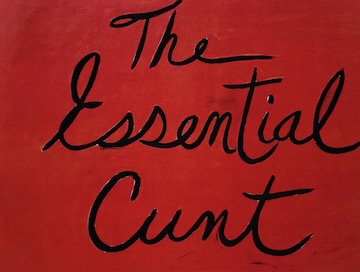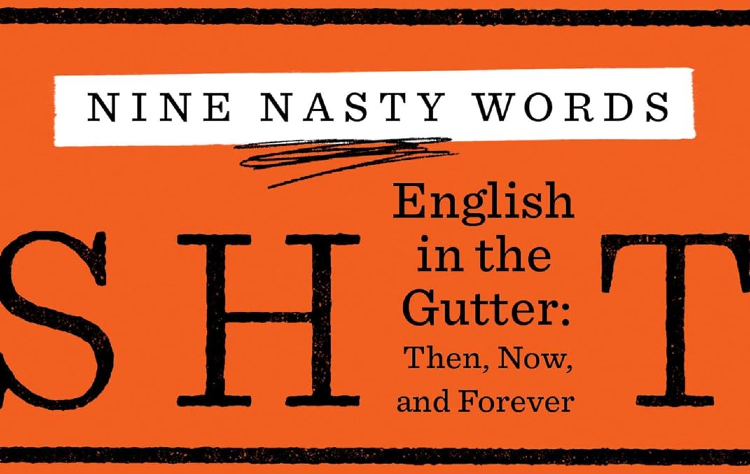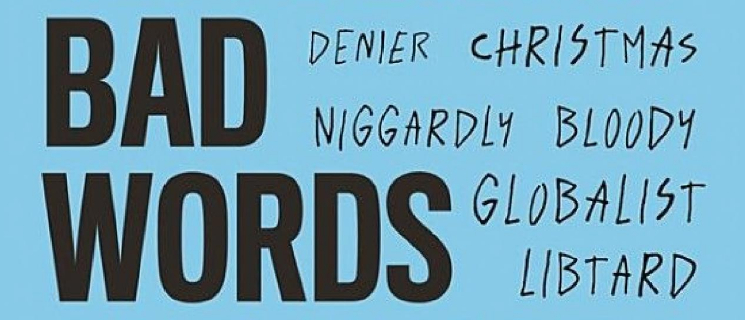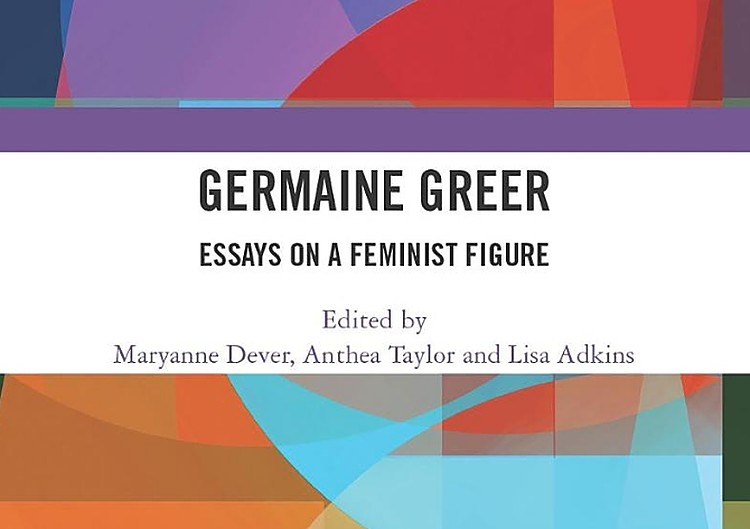
[This review contains spoilers.]
A young woman dies, and returns as a ghost to reunite with her husband. This Thai legend, the story of Mae Nak, has been retold dozens of times, including in the blockbuster Pee Mak (พี่มาก .. พระโขนง) starring Davika Hoorne. (I wrote about the various Mae Nak adaptations for Encounter Thailand magazine.)
Davika also stars in A Useful Ghost (ผีใช้ได้ค่ะ), though there’s a bizarre twist to the tale: she plays Nat, a ghost that returns to her husband March not as a traditional spectre, but as a haunted vacuum cleaner. (The names Nat and March evoke those of Mae Nak and her husband Mak.)
In A Useful Ghost, the spirits of the dead possess electrical appliances, either to be near their loved ones or, in most cases, to torment the people responsible for their deaths. Inhaling toxic dust particles seems to be a common cause of death, hence the possessed vacuums, and this is a reflection of real life: Bangkok and Chiang Mai are notorious for their air pollution.
A young woman dies, and returns as a ghost to reunite with her husband. This Thai legend, the story of Mae Nak, has been retold dozens of times, including in the blockbuster Pee Mak (พี่มาก .. พระโขนง) starring Davika Hoorne. (I wrote about the various Mae Nak adaptations for Encounter Thailand magazine.)
Davika also stars in A Useful Ghost (ผีใช้ได้ค่ะ), though there’s a bizarre twist to the tale: she plays Nat, a ghost that returns to her husband March not as a traditional spectre, but as a haunted vacuum cleaner. (The names Nat and March evoke those of Mae Nak and her husband Mak.)
In A Useful Ghost, the spirits of the dead possess electrical appliances, either to be near their loved ones or, in most cases, to torment the people responsible for their deaths. Inhaling toxic dust particles seems to be a common cause of death, hence the possessed vacuums, and this is a reflection of real life: Bangkok and Chiang Mai are notorious for their air pollution.

Ratchapoom Boonbunchachoke’s film begins as an absurd comedy, as the haunted Hoover trundles around. (A Useful Ghost shares its sense of deadpan humour with the short films of Sorayos Prapapan.) In a hilarious early sequence, a monk insults Nat’s ghost, prompting a debate among his fellow monks: “Sir, we’re holy men. We shouldn’t use words like ‘cunt’ too liberally.”
In its second half, A Useful Ghost becomes much darker. We discover that some appliances are haunted by victims of political violence: Dr Paul, a government minister, complains that he can’t sleep due to the sounds of gunshots replayed by the ghosts of those who died at Ratchaprasong in 2010. It’s this noise, not his conscience, keeping him awake at night.
Dr Paul leads a decadent lifestyle, and seems to have authority everywhere he goes, yet his ministerial portfolio is unspecified. This ambiguity, and his generic name, are presumably intended to avoid any association with real-life politicians. His wife complains about protesters who revive memories of the 1976 Thammasat massacre and the 1932 revolution, and a subplot about the dismantling of a frieze also refers to the removal of monuments commemorating 1932.
The film shifts in tone from comedy to political satire, as Nat taps into people’s dreams and the state uses electroconvulsive therapy to erase the memories of the ghosts’ living relatives. (If people can’t remember the deceased in their dreams, then the ghosts will disappear.) The ECT not only eliminates the ghosts, it also ensures that any memories of state atrocities are erased, and March resists this brainwashing by reading a (fictional) book about Ratchaprasong. As he tells Nat, she is helping to delete history, so he is trying to preserve it.
In its second half, A Useful Ghost becomes much darker. We discover that some appliances are haunted by victims of political violence: Dr Paul, a government minister, complains that he can’t sleep due to the sounds of gunshots replayed by the ghosts of those who died at Ratchaprasong in 2010. It’s this noise, not his conscience, keeping him awake at night.
Dr Paul leads a decadent lifestyle, and seems to have authority everywhere he goes, yet his ministerial portfolio is unspecified. This ambiguity, and his generic name, are presumably intended to avoid any association with real-life politicians. His wife complains about protesters who revive memories of the 1976 Thammasat massacre and the 1932 revolution, and a subplot about the dismantling of a frieze also refers to the removal of monuments commemorating 1932.
The film shifts in tone from comedy to political satire, as Nat taps into people’s dreams and the state uses electroconvulsive therapy to erase the memories of the ghosts’ living relatives. (If people can’t remember the deceased in their dreams, then the ghosts will disappear.) The ECT not only eliminates the ghosts, it also ensures that any memories of state atrocities are erased, and March resists this brainwashing by reading a (fictional) book about Ratchaprasong. As he tells Nat, she is helping to delete history, so he is trying to preserve it.

The forgetting of political violence is also a key theme in the sci-fi film Taklee Genesis (ตาคลี เจเนซิส), the short film Transmissions of Unwanted Pasts (วงโคจรของความทรงจำ), the video installation Delete Our History, Now! (อำนาจ/การลบทิ้ง), and Wichaya Artamat’s new play The Dead Still Riot (whose title describes the ending of A Useful Ghost). There are three short films featuring the ghosts of Ratchaprasong massacre victims: We Will Forget It Again (แล้วเราจะลืมมันอีกครั้ง) — which also deals with the theme of forgetting the past — This House Have Ghost [sic], and Hush, Tonight the Dead Are Dreaming Loudly (as discussed in Thai Cinema Uncensored).
As in Ten Years Thailand and Supernatural (เหนือธรรมชาติ), A Useful Ghost uses dystopian science-fiction to comment on present-day Thailand. Like the film’s scientists wiping memories, successive military governments have sought to suppress discussion of controversial events. The result of this whitewashing is a cycle of nascent democratic reforms repeatedly reset by military coups, as forgotten history is destined to repeat itself.
A Useful Ghost’s initial focus on dust particles and vacuum cleaners is given an additional resonance in its second half. In Thailand, the idiom ‘dust under the feet’ refers to people swept under the carpet like specks of dust to be vacuumed up. The film’s cathartic ending hints at this metaphorical meaning of ‘dust’, as the ghosts wreak their revenge on Dr Paul while dust particles are shown glittering in the air.
As in Ten Years Thailand and Supernatural (เหนือธรรมชาติ), A Useful Ghost uses dystopian science-fiction to comment on present-day Thailand. Like the film’s scientists wiping memories, successive military governments have sought to suppress discussion of controversial events. The result of this whitewashing is a cycle of nascent democratic reforms repeatedly reset by military coups, as forgotten history is destined to repeat itself.
A Useful Ghost’s initial focus on dust particles and vacuum cleaners is given an additional resonance in its second half. In Thailand, the idiom ‘dust under the feet’ refers to people swept under the carpet like specks of dust to be vacuumed up. The film’s cathartic ending hints at this metaphorical meaning of ‘dust’, as the ghosts wreak their revenge on Dr Paul while dust particles are shown glittering in the air.















